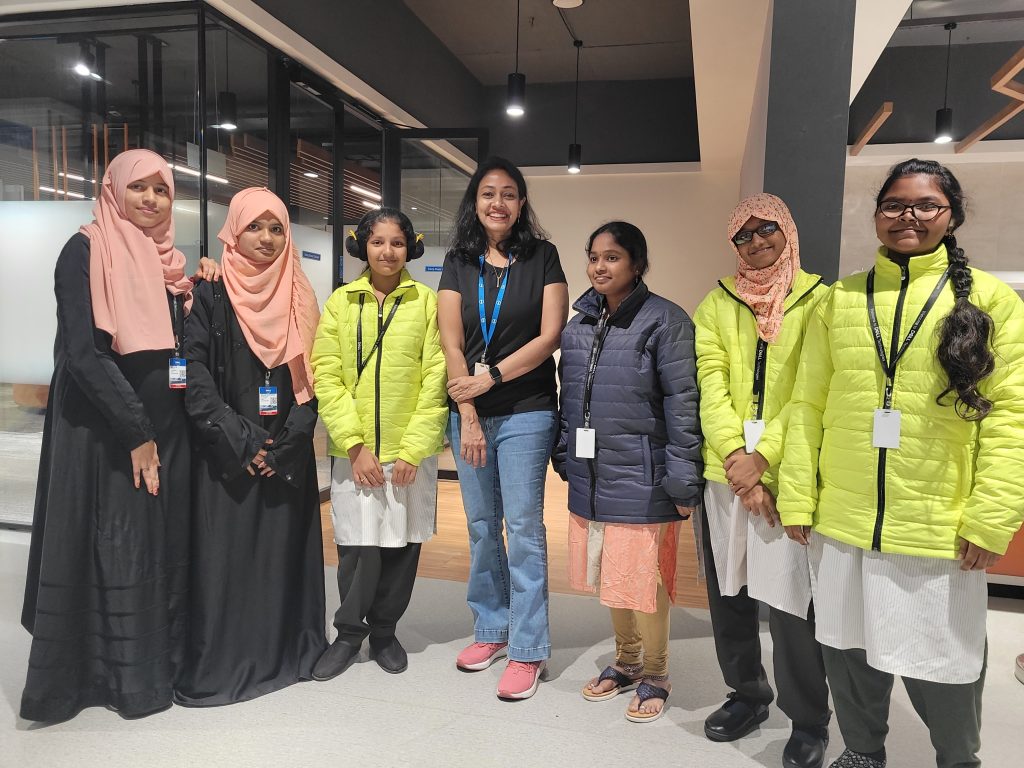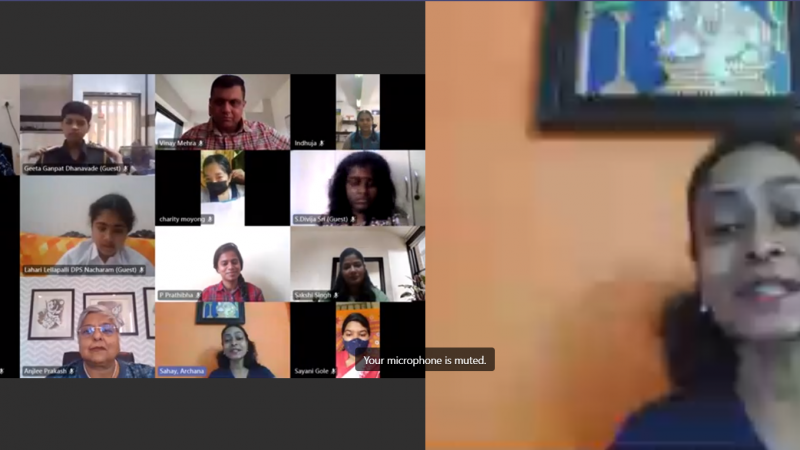About

Dell Technologies has always believed in the value of investing in human capital, as it plays a crucial role in accelerating human progress. It has consistently sought sustainable avenues for investment in areas that will shape the future, and education has been at the forefront of their efforts. India’s educational landscape is brimming with opportunities that can genuinely make a difference in shaping the world’s future. This very notion has inspired Dell Technologies to prioritize investment in education. The goal is to propel the world in the right direction, acting as a catalyst for meaningful global shifts and changes. With this ambitious mission in mind, Dell Technologies collaborated with the Government of India’s Atal Innovation Mission (AIM) and NITI Aayog in 2017 to adopt Atal Tinkering Labs (ATL) in select government schools across India. These ATLs are dedicated workspaces for students in grades 6 to 12, where they have access to advanced technological equipment, including 3D printers, robotics, electronic development tools, IoT sensors, and more.
In these labs, students engage in creative thinking, teamwork, collaboration, and problem solving while exploring future-focused skills such as artificial intelligence, computational thinking, and adaptive learning. Dell Technologies is proud to contribute to India’s educational landscape and nurture the innovators of tomorrow.
The partnership between Dell Technologies and Atal Innovation Mission, NITI Aayog, along with Learning Links Foundation as an implementation partner, resulted in the adoption of hundreds of Atal Tinkering Labs across India. These Atal Tinkering Labs are established in government schools to promote and nurture innovation, address real-life problems through disruptive technologies, and impact communities beyond schools. They also launch various programs and initiatives to ensure that the country embraces a culture of innovation across education and entrepreneurship.
Having successfully instilled entrepreneurial skills in students, Dell Technologies wanted to further invest in STEM Education. This aspiration led to the conceptualization of an initiative or program that would enable girls to showcase their progress after harnessing available opportunities.

As part of this initiative and to strengthen the collaboration with AIM, NITI Aayog, Dell Technologies launched the ‘SheCodes Innovation Program’ in 2020, aligning it with the nationwide Tinkering Challenge previously introduced by Atal Innovation Mission, NITI Aayog, Government of India. The program encouraged girls to tinker, create, sustain, and innovate.”

The program followed a phased approach to student engagement, including mentor-led boot camps, internships with Dell Technologies, product development and testing, patent and copyright filing support, and product launch guidance. This structured approach ensured that aspiring entrepreneurs embarked on a comprehensive and multi-faceted journey, gaining a deep understanding of the business world. Furthermore, the program also facilitated the creation of a network of young innovators and entrepreneurs.
The program introduced 320 female students from all over the country to the dynamic world of tinkering, creating, and innovating. As a result of their participation, these students collectively filed 15 patents and successfully developed over 300 prototypes, with 23 of these products advancing to the commercial stage.
Education and entrepreneurship initiatives
The education and entrepreneurship initiatives took shape with the ATL Student Entrepreneurship Program launch in January 2019. This program was initiated by Dell Technologies in collaboration with Atal Innovation Mission, NITI Aayog, and Learning Links Foundation as an implementation partner.The ATL Student Entrepreneurship Program (ATL SEP) aimed to empower the top innovations from the ATL Marathon 2017 by helping them transform their innovative prototypes into fully functioning, scaled, and market-ready products. This comprehensive 10-month program provided students with support in various areas, including mentoring, technical assistance, product marketability, funding and incubation opportunities, and patenting.
The top 6 teams of this program had the opportunity to undergo an internship program at Dell Technologies’ R&D facility located in Bengaluru in July 2019. During the internship, student innovators received continuous mentoring support to manufacture fully functional market-ready products, patent their ideas/processes, and launch their products into the market.
Following the resounding success of the ATL Student Entrepreneurship Program and recognizing the importance of integrating entrepreneurial skills into the school ecosystem, the Student Entrepreneurship Program (SEP) 2.0 was launched in 2020. This new iteration brought exciting changes to the landscape of innovator-driven entrepreneurship.
Through SEP 1.0 and 2.0, young innovators were able to develop 13 unique and viable solutions for the country. These solutions were all locally designed, available at affordable prices, and aimed to address community problems. The 10-month journey for both SEP 1.0 and 2.0 programs allowed young innovators to complete the product testing stage and make necessary modifications based on collected feedback. Additionally, innovators had the opportunity to protect the intellectual property rights of their innovations by submitting patent applications to the Indian patent office. As a result, these innovators successfully established their market presence through product websites, registration on e-commerce portals, and the establishment of their own companies.
The remarkable success of these entrepreneurship initiatives paved the way for the launch of programs like SheCodes and ShePreneur. SheCodes was introduced in 2020, while ShePreneur followed in 2022, both in collaboration with AIM, NITI Aayog, and Learning Links Foundation.

